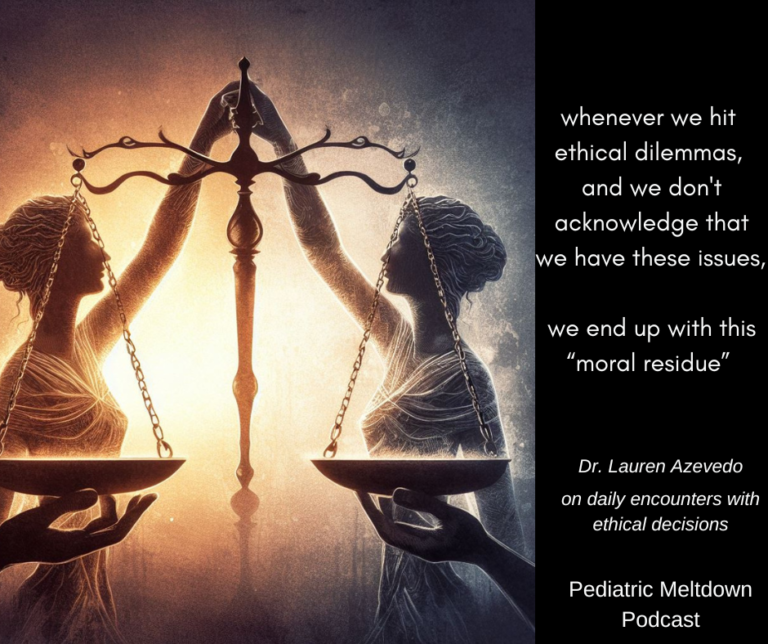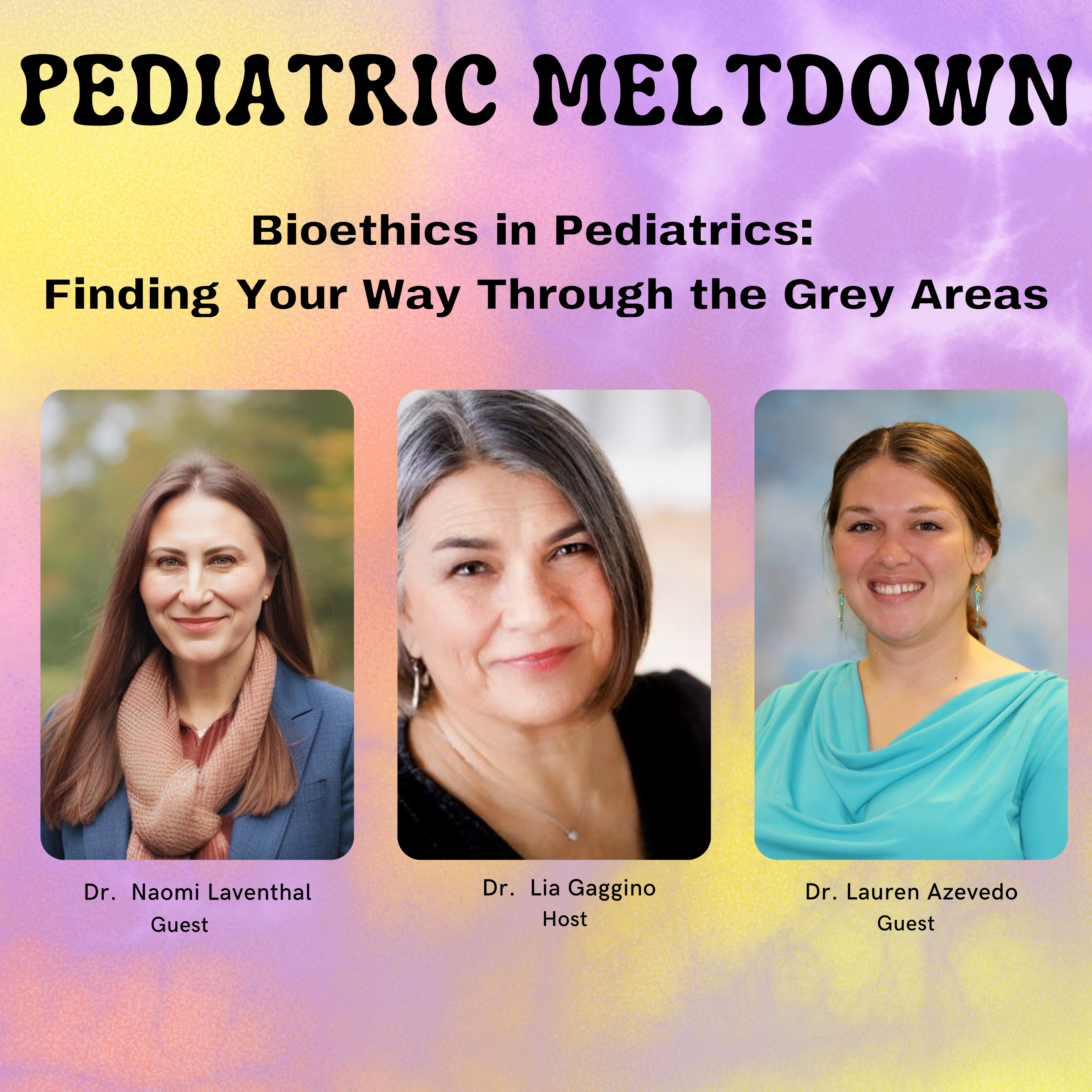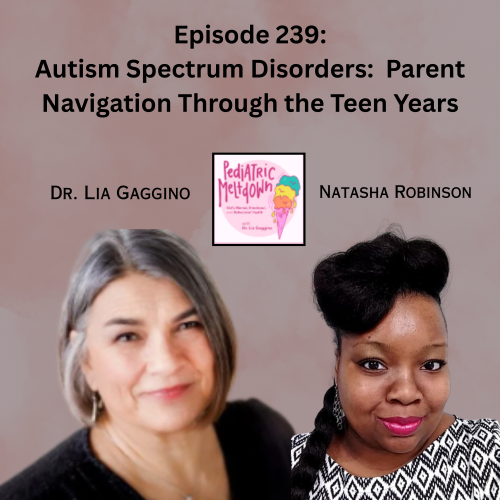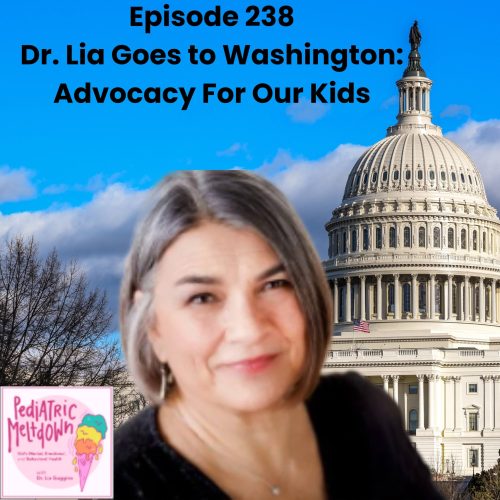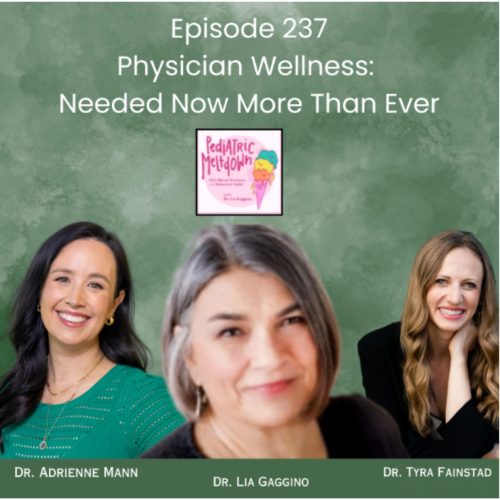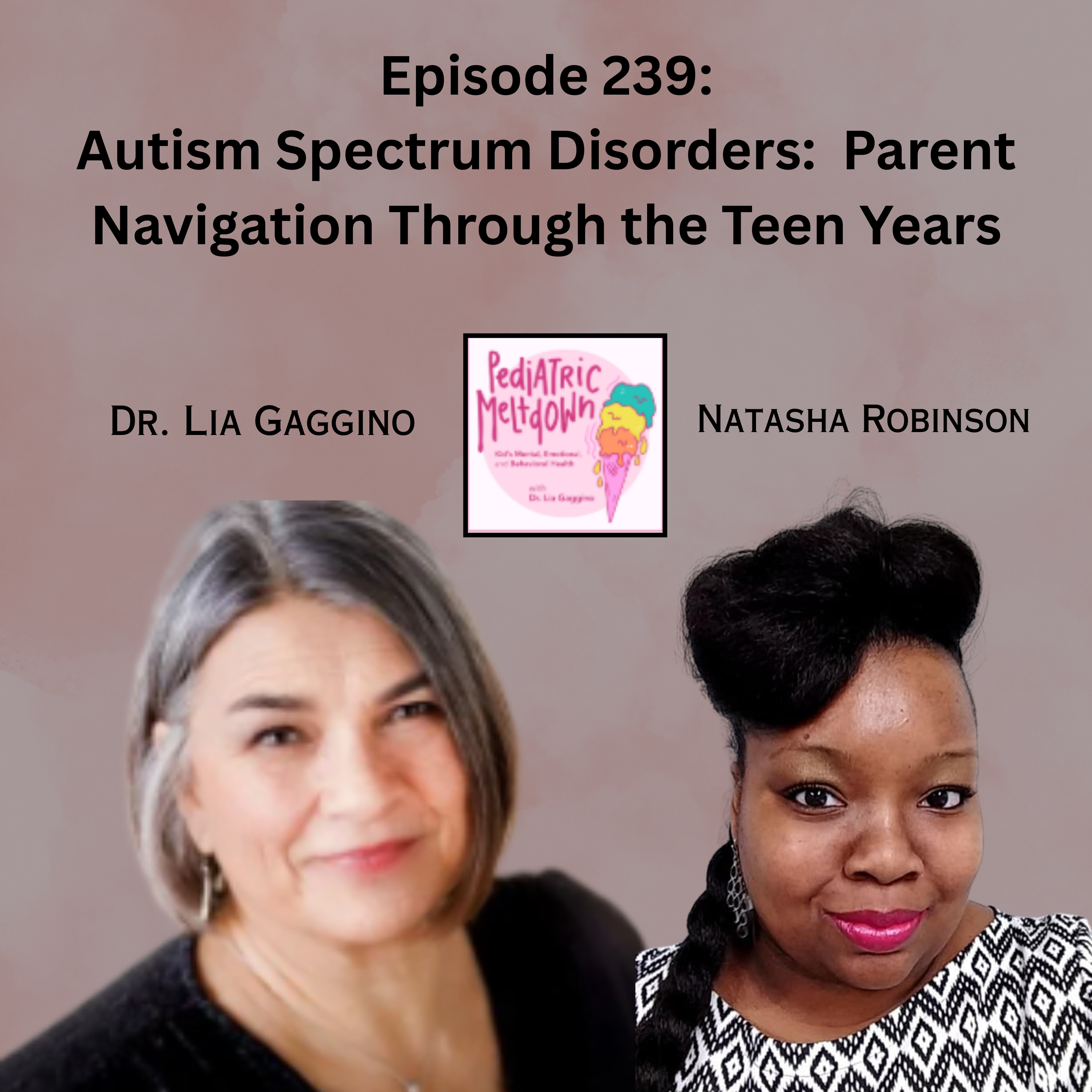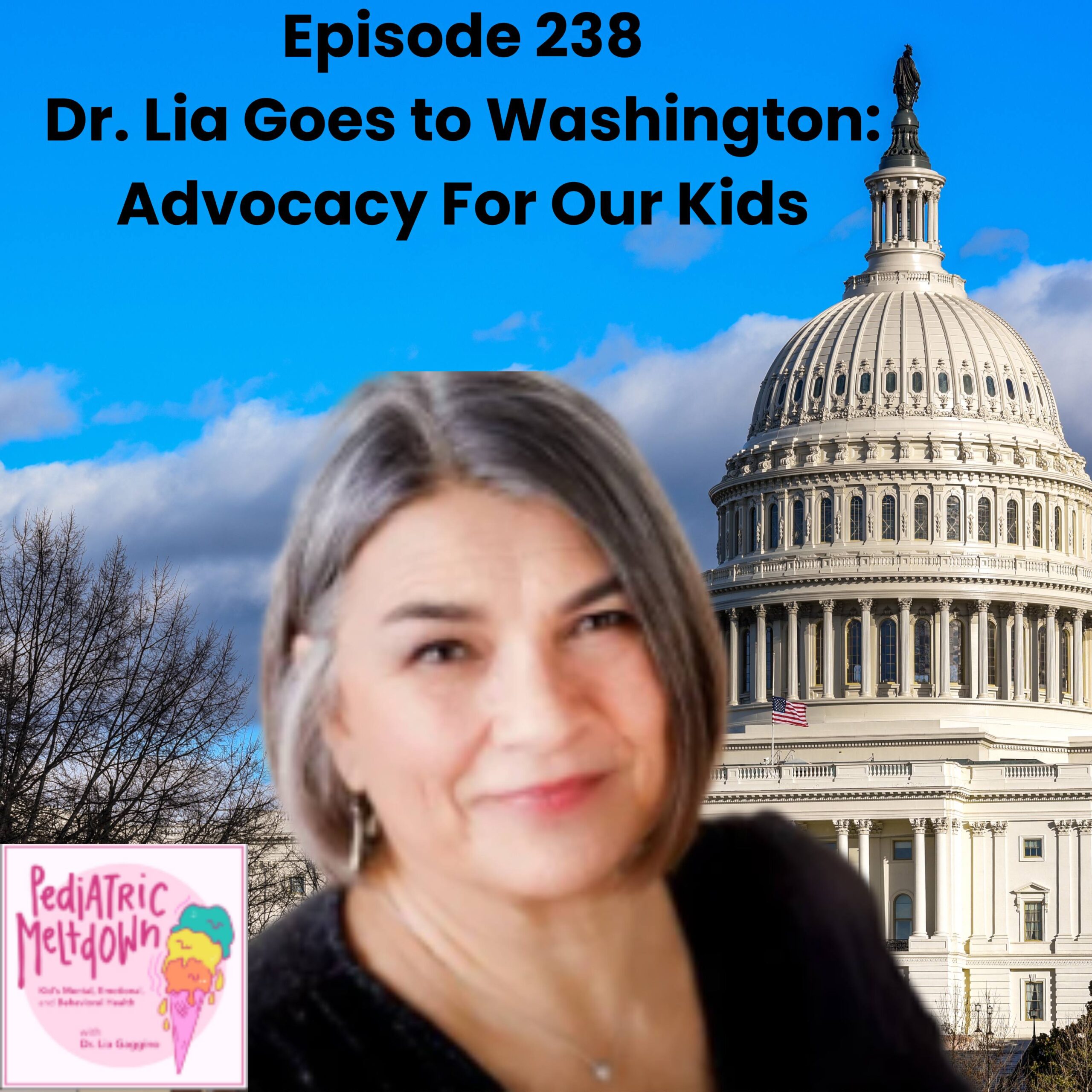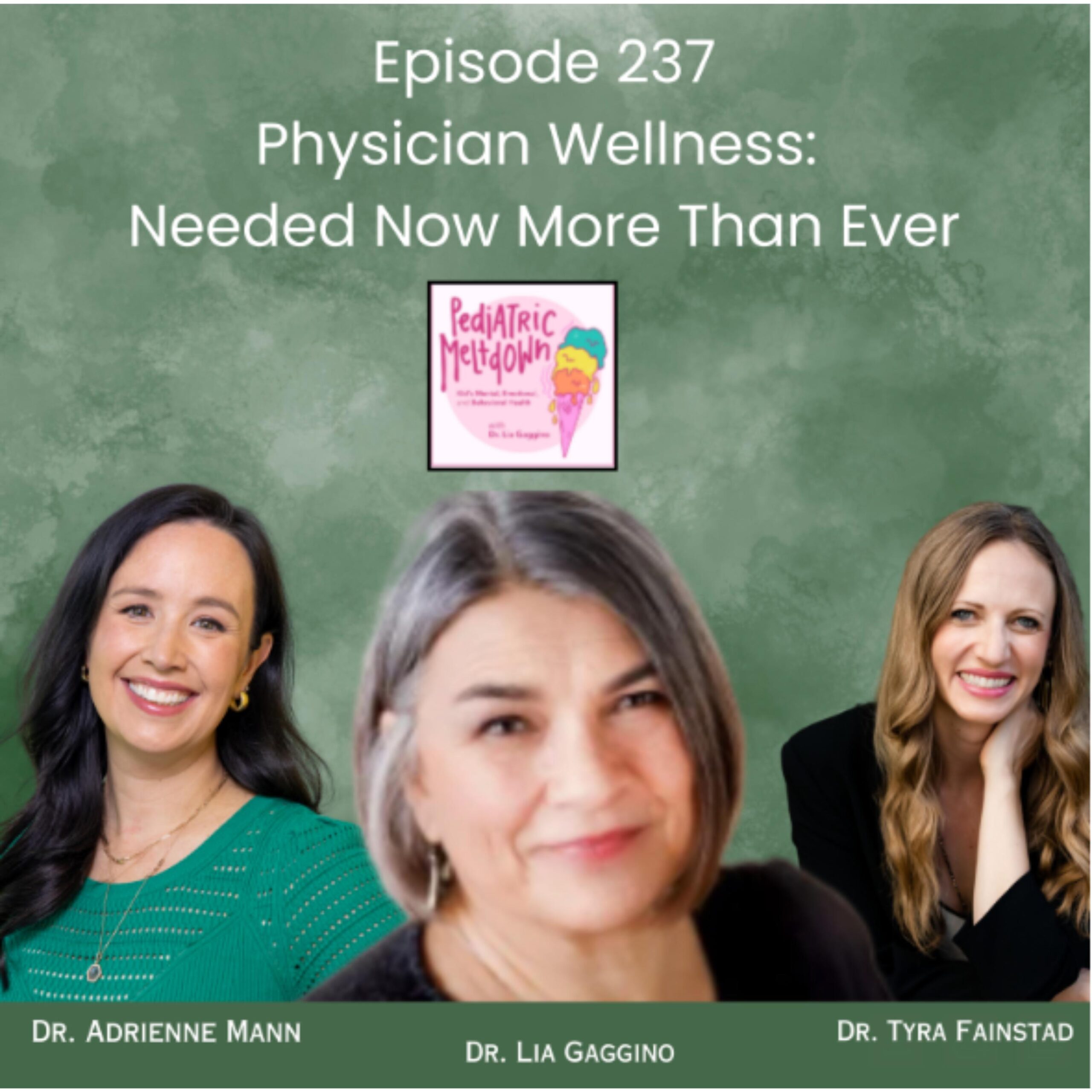170 Bioethics in Pediatrics: Finding Your Way Through the Grey Areas
Are you ready to dive deep into the Bioethical challenges that pediatricians encounter on a daily basis? Host, Dr. Lia Gaggino, talks with guests Dr. Lauren Azevedo and Dr. Naomi Laventhal about the difficult decisions and moral dilemmas that arise in outpatient and inpatient settings.
From controversial topics like vaccine hesitancy and substance abuse to the delicate balance between autonomy and parental involvement, this episode leaves no ethical stone unturned. They’ll take you through their day as they navigate the treacherous terrain of consent, confidentiality, and decision-making in both outpatient and inpatient care.
You’ll hear about scenarios of child abuse and custody disputes. It’s clear that navigating ethical challenges in pediatric care requires clear communication, and a commitment to finding common ground. By acknowledging the good intentions of all involved and embracing emotions as part of the decision-making process, we can work towards the best outcomes for our patients and their families.
Remember, in the midst of the chaos, everyone is on the same team, fighting against disease, advocating for what is right, and ultimately delivering the best care possible. Stay strong, stay compassionate, continue to meet these challenges with empathy, integrity, and a commitment to the well-being of all patients.
[00:33 -18:25] Bioethics in a Pediatric Practice
- Ethical dilemmas in divorce and custody disputes
- Medication decisions when parents have opposing views
- Navigating conflicting parental preferences
- Creating a safe plan for the patient’s well-being
[18:26 – 28:51] Effective Communication Techniques
- Clarifying questions: asking for further information or examples to ensure understanding.
- Empathy: showing understanding and validation of the speaker’s emotions.
- Non-verbal cues: using body language and facial expressions to convey interest and engagement.
- Reflective responses: paraphrasing what the speaker said to confirm comprehension.
[28:52 – 38:38] Ways to Promote Independence in Children Without Disabilities
- Foster critical thinking and decision-making in children.
- Develop self-sufficiency by giving children responsibilities.
- Build confidence and autonomy through involvement in decision-making.
- Teach effective time management through scheduling and goal-setting.
[38:39 -55:16] Institutional Guidelines
- Specific protocols and procedures for handling ethical issues within your institution
- Information on who to contact and when for guidance and support
- Training materials and resources for healthcare professionals
- Case studies and examples of ethical dilemmas in your institution
[55:17-1:02:56] Closing segment Takeaway
You can reach Dr. Lauren Azevedo
LinkedIn: www.linkedin.com/in/azevedo6915
You can reach Dr. Naomi Laventhal
LinkedIn: www.linkedin.com/in/naomineoethics
Links to resources mentioned on the show
AAP statements from the Committee on Bioethics https://publications.aap.org/pediatrics/collection/528/Committee-on-Bioethics?autologincheck=redirected
AAP Resident Curriculum from the Section on Bioethics: https://downloads.aap.org/AAP/PDF/Bioethics-FullCurriculum.pdf
Books about Neonatal stuff:
- Breathe, Baby, Breathe, by Annie Janvier (translated into English from French by Phyllis Aranoff and Howard Scoff)
Books about Pediatric Ethics:
- Clinical Ethics in Pediatrics: A Case-Based Textbook by Doug Diekema and Mark Mercurio
- Dominic Wilkinson and Julian Savulescu wrote a nice book after Charlie Gard – Ethics, Conflict, and Medical Treatment for Children
Moral Distress, Moral Residue and the Crescendo Effect. The original 2009 article has a pay wall but a nice commentary that applies this to the COVID-19 pandemic is here: https://deploymentpsych.org/blog/staff-perspective-moral-distress-residue-and-crescendo-effect-understanding-potential-impact
For more accessible books:
- The Spirit Catches You and You Fall Down
- The Immortal Life of Henrietta Lacks
- Five Days at Memorial
Podcast (be in a place to listen to this one, it’s hard):
Hidden Brain – The Ventilator: Life and Death Decisions We Make at the End https://www.npr.org/2019/11/13/778933239/the-ventilator-life-death-and-the-choices-we-make-at-the-end
For fiction with good ethics themes:
The Descendants (2011 – apparently it’s also a book), the
TV Show “The Good Place”
The Cider House Rules (book over movie but both good!)
Local Websites:
CBSSM (U of M) https://cbssm.med.umich.edu/
Center for Bioethics and Social Justice (Michigan State) https://bioethics.msu.edu/
Study of Ethics in Society (Western Michigan Univ) https://wmich.edu/ethics/focus/biology-medicine
A2ethics https://www.a2ethics.org/
Other episodes you may like:
https://pediatricmeltdown.com/episodes
164 Protecting Innocence: Talking to Children About War
151 American Indian/Alaskan Native Youth: Beyond Adversity
147 Racial Discrimination and Black Infant Morbidity and Mortality: Systemic Change Starts with You
146 Racism, Medicine, and Transformation: Eliminating Health Disparities and Systemic Inequities
Key quotes for Twitter:
“I think common language, steering away from inflammatory words, and sometimes we lose a useful word because it becomes too toxic, even if it was a useful word.” … Dr. Naomi Laventhal on the power of language
“So I think that this is a case where preparation is really important. Knowing what you’re going into before you go into the room and having worked out some of those what’s negotiable, what’s non negotiables, and laying the groundwork for that.”…. Dr. Lauren Azevedo on the importance of preparation
THANK YOU FOR YOUR SUPPORT!
Pediatric Meltdown was listed as a Top 20 Pediatric Podcast on FeedSpot.
If you’d like to connect with me, you can Tap the “What Are Your Thoughts” button at the top of the notes or you can find me on LinkedIn, Facebook, Instagram, and Twitter, or email me at [email protected]. To learn more about me visit https://www.medicalbhs.com/
LOVE WHAT YOU HEARD? Leave us a 5-star review so we can continue to provide you with great content. Share this episode and help people know more about children’s health and well-being.
